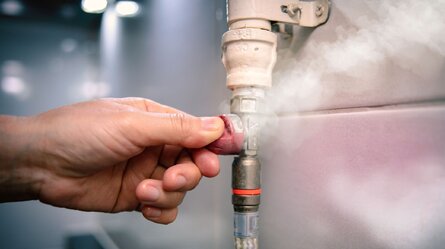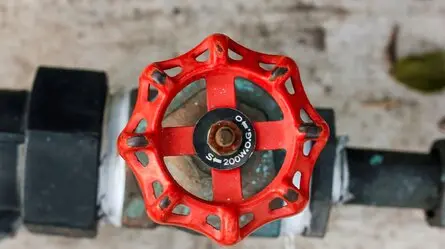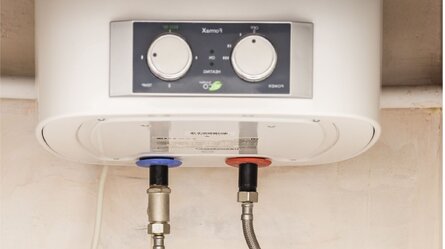Imagine a sudden plumbing emergency in your commercial space—it could be a burst pipe flooding your offices or a clogged drain causing unsanitary conditions. Such issues can happen out of the blue.
These disruptions need immediate action because every minute counts against your business. Having a solid emergency plan and necessary supplies ensures you can quickly tackle any plumbing disaster that arises.
We’ve put together some handy tips to help you effectively tackle common plumbing emergencies in commercial spaces, like office buildings, retail stores, and hotels. You’ll find strategies to contain damage, solve problems, and make repairs so your business can bounce back swiftly after a crisis.
How to Respond to Commercial Plumbing Emergencies
Plumbing emergencies like burst pipes, gas leaks, and sewer backups can devastate commercial properties, leading to substantial damage and costly downtime. Being prepared to respond swiftly and effectively is crucial.
We have listed response strategies to handle commercial plumbing system disasters in offices, retail stores, restaurants, hotels, and other commercial spaces. Follow these best practices to protect your property, minimise disruption, and get your business back up and running quickly after a commercial plumbing emergency.
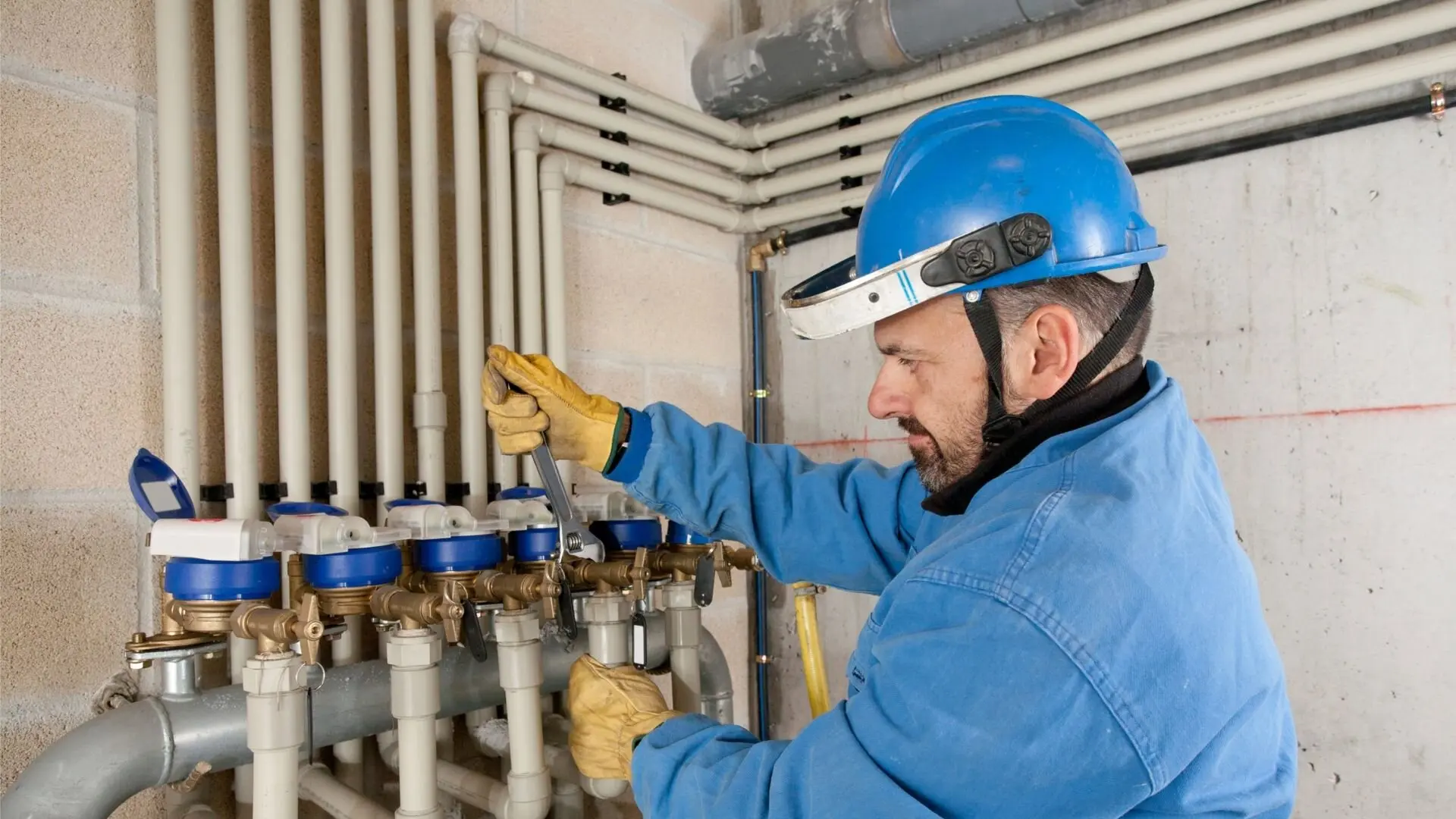
Develop a Detailed Emergency Response Plan
Every commercial facility should have a customised emergency response plan for commercial plumbing disasters. The plan should establish response teams, detail notification procedures, and provide step-by-step instructions for assessment, repairs, and safety protocols.
Include emergency contacts such as a professional plumber, restoration services, and insurance providers. Ensure that all staff understand their responsibilities.
Post copies around the property and share digital versions so the plan is accessible even if on-site copies are damaged. Taking time to develop and practice emergency plan execution minimises costly downtime when a plumbing disaster strikes.
Train Staff on Emergency Protocols
Make sure every staff member is thoroughly trained on the emergency response plan, so they’re clear about their roles when needed most. Conduct both classroom sessions and on-site drills to reinforce this training.
Review key procedures like shutting off the water, managing leaks, and doing quick repairs. Keep this training up-to-date by refreshing it annually or whenever changes occur. Proper training ensures everyone can handle high-stress situations effectively, minimizing further issues. Keep records of all training sessions for accountability.
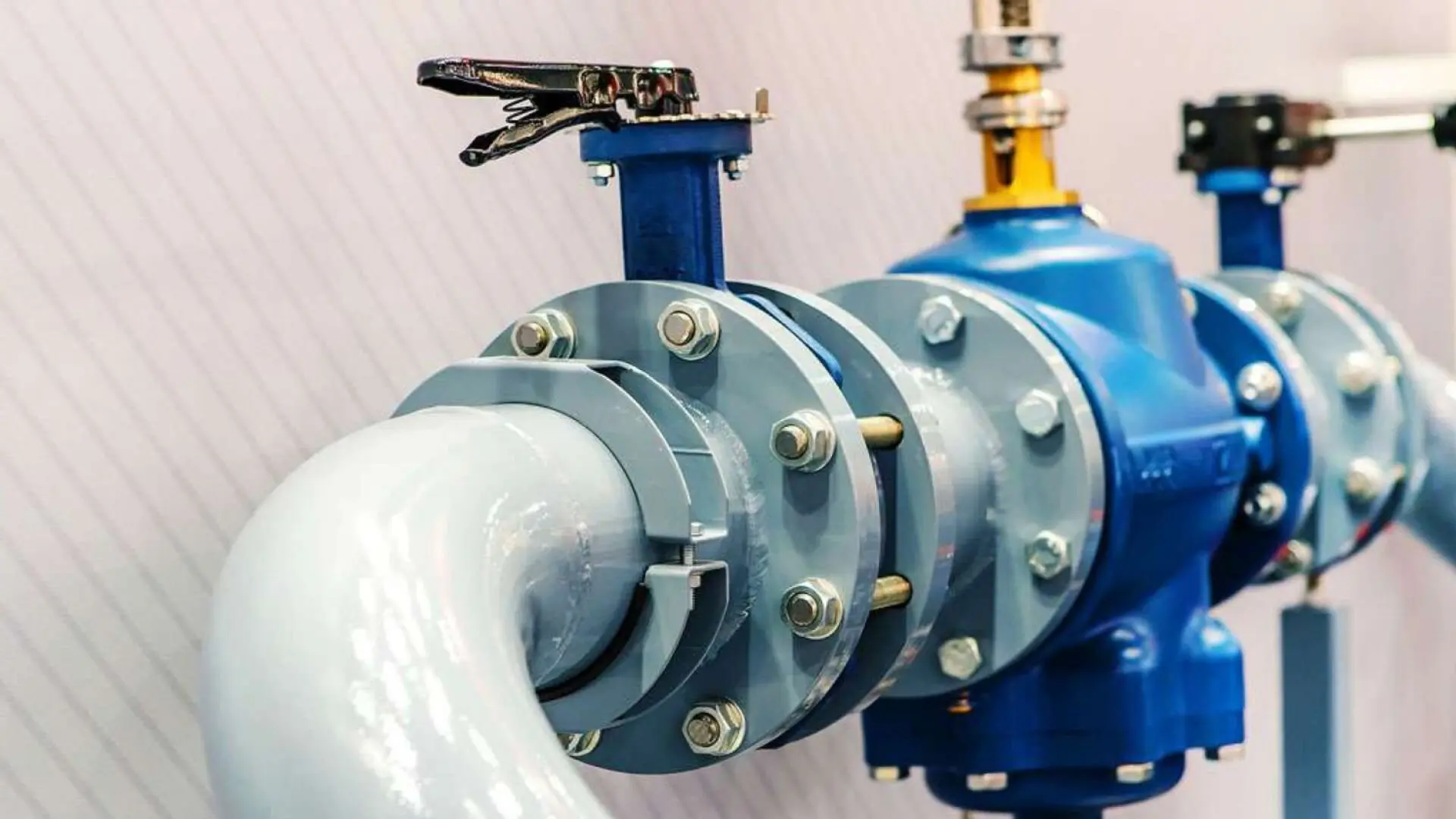
Assemble a Plumbing Emergency Supply Kit
Having the right equipment on hand saves critical time during commercial plumbing emergencies. Supply kits should include pipe repair tools, valves, spare parts like pipe segments and fittings, absorbent materials, protective gear like goggles and gloves, heavy-duty fans, squeegees, and wet/dry shop vacuums.
Cameras/video equipment should also be included to photograph damage for insurance claims. Place kits around the property and inspect their contents regularly. Properly stocked emergency kits allow faster response times and repairs when plumbing disasters strike.
Shut Off the Water Supply Immediately
When a plumbing emergency is discovered, immediately send staff to shut off the main water supply and any zone valves feeding the affected area. To prevent escalation and further flooding, swiftly shutting off the water is the top priority.
Train staff on the locations of all shut-off valves and provide proper tools. Locate isolation points a few minutes before shutting off the whole commercial building. Swiftly cutting off the water supply reduces damage substantially during plumbing crises.
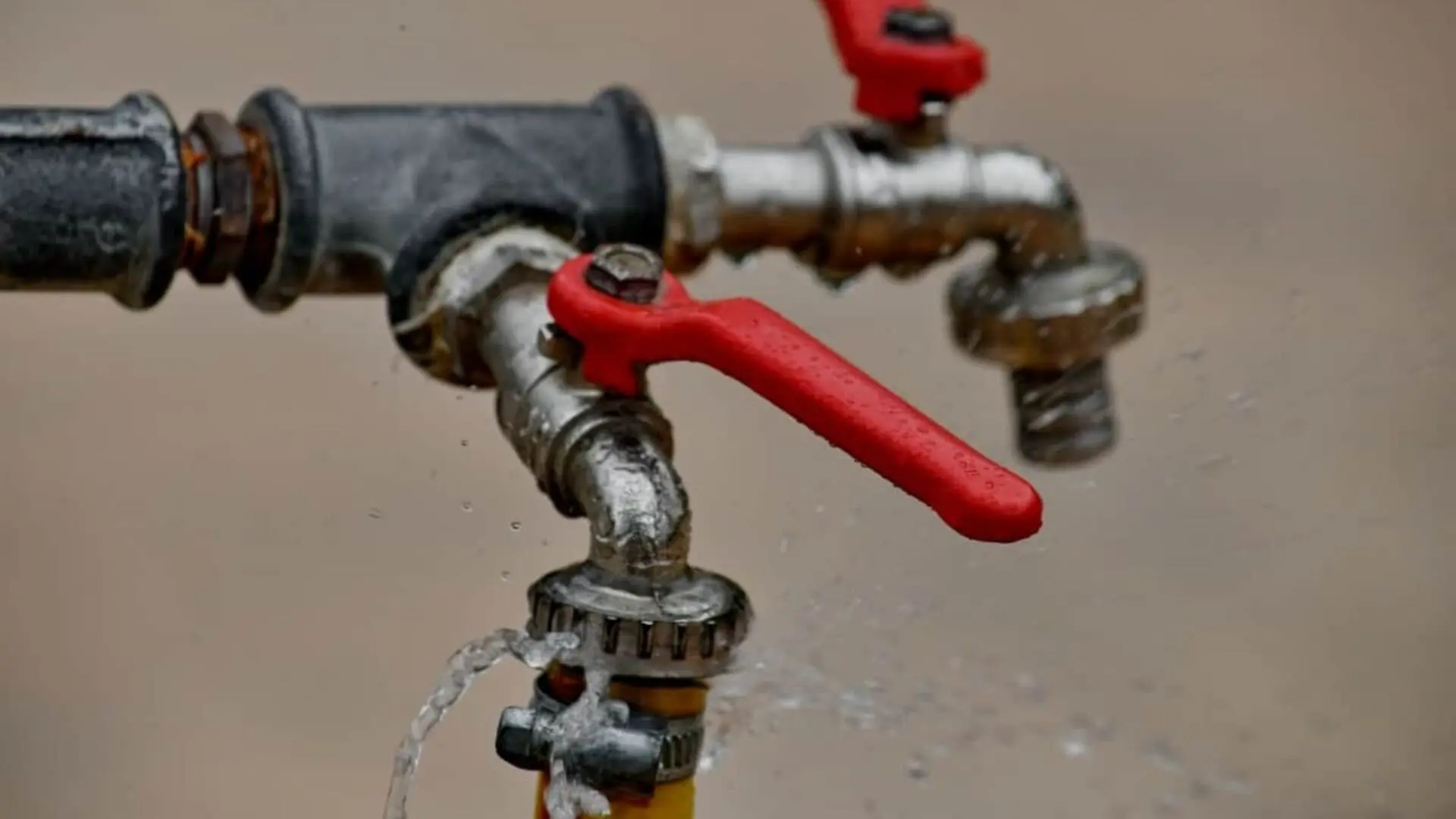
Contain Leaks and Flooding Right Away
After shutting off the water, take urgent action to contain any leaks or flooding. Remove or elevation valuables from standing water.
Place water barriers and absorbents to minimise spread. Use wet/dry vacuums and heavy-duty fans to remove pooled water.
Pumping water away swiftly reduces moisture damage, such as mould growth. Document the affected areas and take photos or videos of damage for insurance claims later. Rapid leak containment greatly reduces harm from commercial plumbing emergencies.
Wear Protective Gear for Safety
Make sure your team is equipped with the right PPE when handling plumbing crises. Water leaks can be slippery and mould can pose health risks. Equip them with rubber boots, gloves, goggles, and respirators.
Keep first aid kits accessible and stick to OSHA safety guidelines. Appoint safety marshals to oversee hazards and ensure everyone’s following protocols. These precautions help keep your team safe and reduce potential liabilities during challenging plumbing situations.
Evaluate and Document All Damage
Thoroughly inspect affected areas once leaks are controlled. Note damage to structures, furniture, equipment, and inventory. Look for mould, water stains, and instability. Photograph/videotape all damage and take moisture readings if possible.
Detailed documentation provides critical information for developing repair plans and substantiates insurance claims. Professional assistance may be needed for large-scale damage assessment.
Make Temporary Repairs to Restore Function
Temporary repairs can be made to restore critical functions while permanent repairs are arranged. For example, cracks or holes can be patched, damaged pipe sections bypassed, or new hoses installed to restore the water supply.
Commercial plumbers can install large-capacity temporary water pumps. Temporary fixes allow minimal operations to resume while permanent solutions are implemented.
Call in Professional Assistance for Major Issues
For major plumbing emergencies like slab leaks, sewer line breaks, or substantial flooding, contact professional plumbing assistance immediately. Licensed or emergency plumbers have specialised equipment and expertise to safely handle large-scale water and sewage issues.
They can also determine whether hazardous contaminants were released. Trying amateur repairs on major commercial emergency plumbing problems risks costly mistakes and liability.
Arrange Professional Restoration Services
Once leaks are controlled, bring in professional water/fire damage restoration services. They employ specialised drying equipment to remove moisture and prevent mould growth entirely.
Restoration pros can also assist with safely cleaning contaminated water, structural repairs, and contents/inventory recovery. If substantial rebuilding is required, general contractors may also be needed. Professional restoration commercial plumbing services minimise long-term damage.
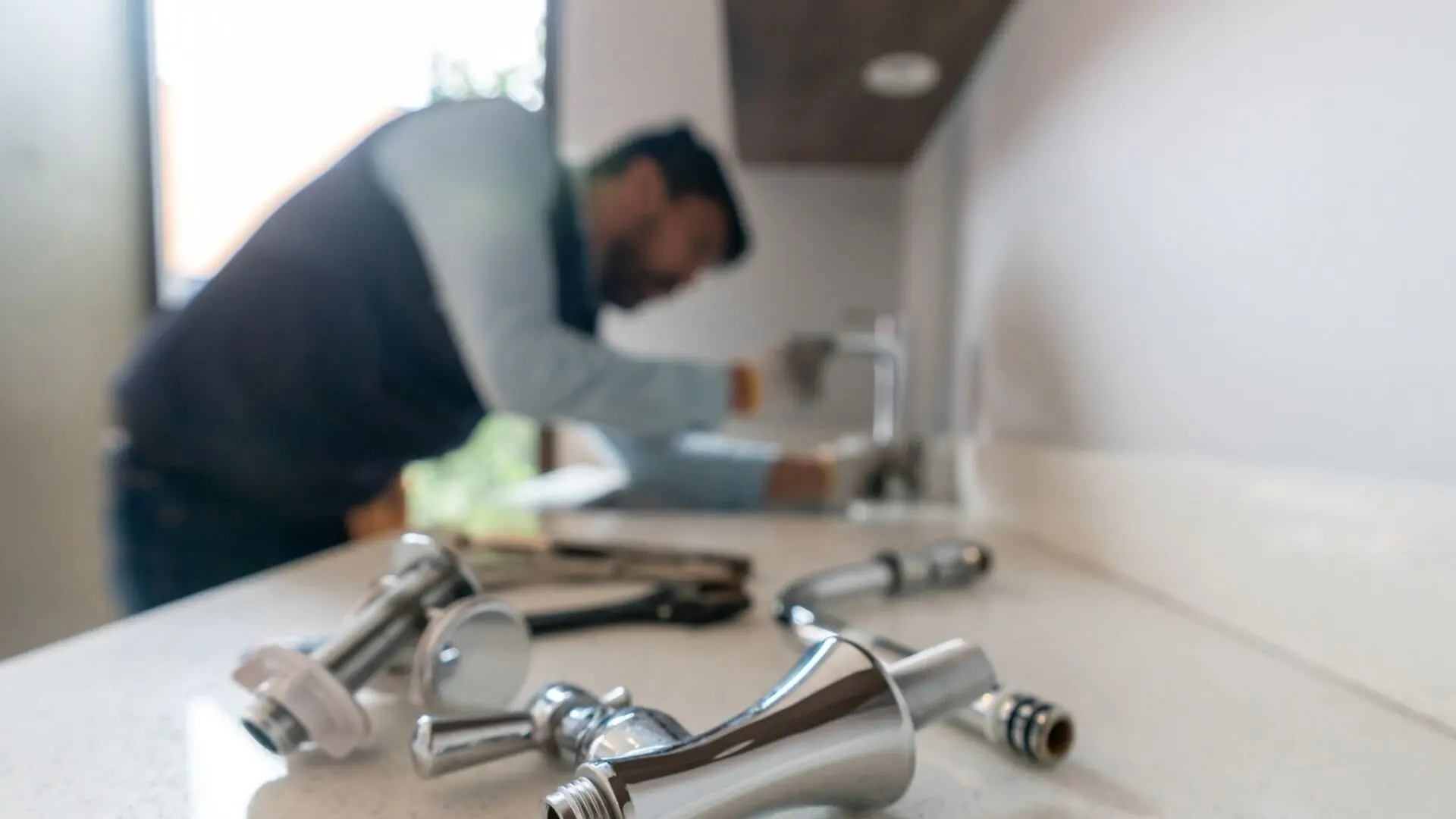
File Insurance Claims for Reimbursement
Notify your commercial property insurer as soon as possible after a plumbing emergency. Document the damage and keep receipts for all expenses incurred during response and repairs.
Submit claims for property damage, inventory losses, extra expenses, and business interruption. Understand policy limits and coverages before paying for repairs out-of-pocket. Insurance can help recoup costs after a major plumbing emergency.
Implement a Preventative Maintenance Schedule
To reduce plumbing emergency frequency, implement a comprehensive preventative plumbing maintenance program. This includes regularly inspecting and servicing water supply lines, drain pipes, water heaters, and other plumbing systems.
Watch for leaks, corrosion, mould, clogs, and other issues. Make repairs promptly. Preventative maintenance helps avoid plumbing emergencies and the resulting downtime.
Be Prepared and Take Action
Plumbing emergencies can wreak havoc on business operations if not handled swiftly and effectively. You can get your commercial property back up and running smoothly by being prepared with emergency plans and supplies, acting quickly to mitigate damage, and arranging professional repairs.
For assistance creating preventative maintenance plans or dealing with plumbing emergencies in your commercial space, contact the experts at Woolf Plumbing. Our local emergency plumber can inspect your commercial plumbing systems, identify vulnerabilities, and recommend proactive maintenance.
We also provide 24/7 commercial emergency plumbing services to resolve any issues. Don’t leave your business vulnerable to expensive plumbing disasters. Contact us today to discuss protecting your commercial property.
FAQ: Responding to Plumbing Emergencies in Commercial Spaces
1. What should a commercial plumbing emergency response plan include?
A comprehensive commercial plumbing emergency response plan should detail procedures for rapid assessment, containment, and repair of damage due to plumbing issues. It must establish roles for response teams, provide emergency contact information for professional plumbers and restoration services, outline safety protocols, and instruct how to shut off the water supply. All staff must be familiar with the plan and trained in emergency protocols.
2. What supplies are needed for commercial plumbing emergencies?
A well-stocked plumbing emergency supply kit should include pipe repair tools, spare parts, valves, absorbent materials, heavy-duty fans, squeegees, and wet/dry vacuums. Personal protective equipment (PPE) like gloves and goggles, first aid kits, and photography equipment for documenting damage should be included. Kits should be placed strategically around the property for accessibility and regularly inspected.
3. How can a business minimise damage during a plumbing emergency?
Immediate actions can significantly reduce the impact of a plumbing emergency. These include shutting off the water supply to prevent further damage, using water barriers and absorbents to contain flooding, and employing pumps, fans, and vacuums to remove standing water. Documenting the extent of damage and initiating temporary repairs to restore critical functions while planning for permanent fixes is crucial.
4. When should a commercial property call an emergency plumber?
Professional assistance from an emergency plumber should be sought immediately for major issues such as slab leaks, significant flooding, sewer line breaks, or when hazardous materials are involved. Licensed plumbers have the necessary skills and equipment to manage large-scale problems safely. For less critical issues, temporary repairs can be made by trained staff until professional help arrives.


